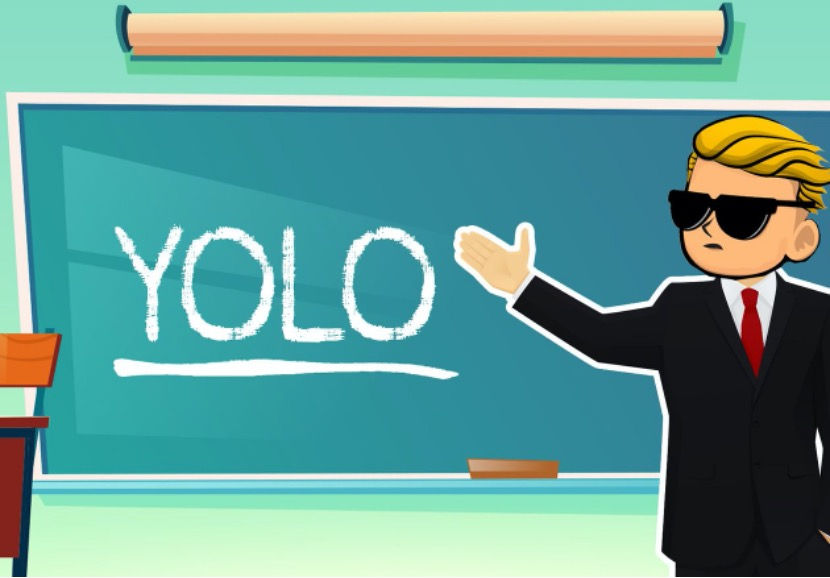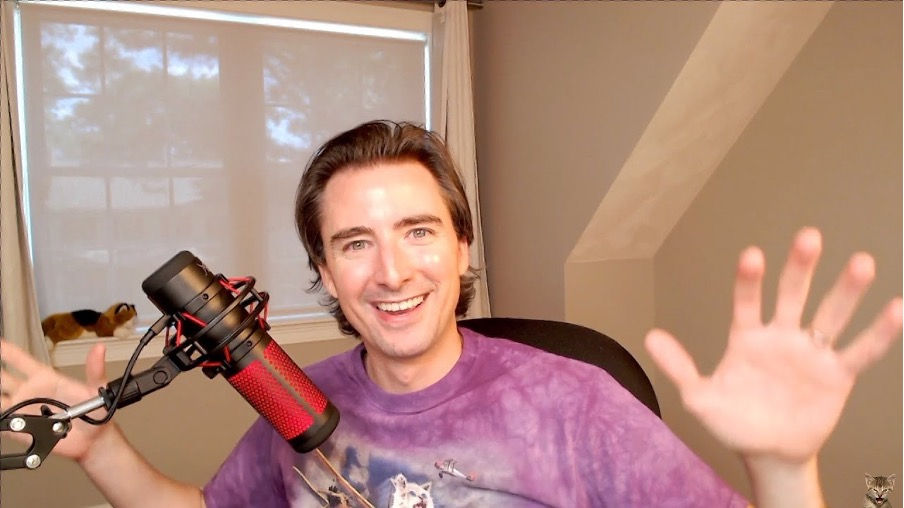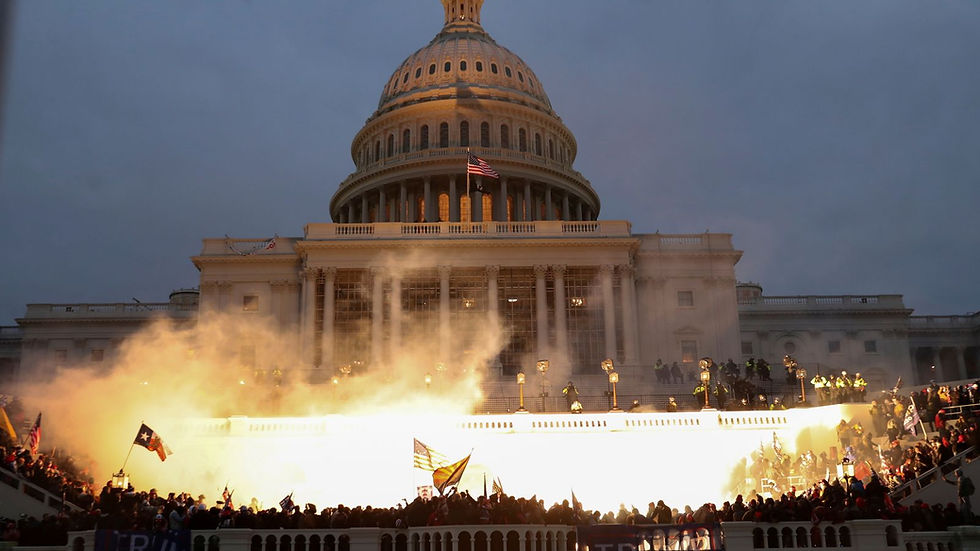To The Moon: The GameStop Short-Squeeze
- Emily O'Callaghan
- Feb 13, 2021
- 7 min read
“Eat the rich” has been a commonplace phrase in the mouths and on the screens of millennials and generation Z throughout the 21st century, following financial catastrophes such as the 2008 housing crisis and meagre stimulus offerings during the COVID-19 pandemic. For years, disgruntled teens and young adults have turned to the phrase in an attempt to express their anger towards the Wall street fat-cats who line their pockets at the expense of emptying others’ and sleep in king-size beds whilst others sleep on storefront doorsteps. Cracking the American financial code has seemed impossible. Until now.
In January 2021, Reddit users on the forum r/WallStreetBets, a community known for their involvement with and discussion of high-risk stock transactions, crafted the foundations in which to cause a short squeeze on the stock of American retailer GameStop. The company, which specialises in new and trade-in game consoles, software, and accessories, saw unprecedented rises to their share price following a comment from Citron Research that predicted the value of the stock would decrease, information that over 138 percent of GameStop’s shares were sold short, and the now infamous “GameStonk!!!” tweet from none other than Reddit idol Elon Musk himself.

Tech-savvy individual investors from the Reddit forum drove the stock price to record-breaking highs, reaching an astonishing $483.00 intraday price on January 28th, light-years away from the lacklustre opening price of $17.25 at the beginning of the month. And whilst small-scale investors and meme-obsessed teens were making money, short-sellers and hedge funds found themselves, for once, losing out on a dramatic scale.
According to Dow Jones market data, more than 175 million shares of GameStop were traded on January 25th, so it’s no surprise that this event has become a major talking-point for economists, politicians, sociologists, journalists, and of course, your everyday Skankhunt42’s who just so happened to catch a glimpse of the story on Twitter. But more often than not, it is irregular to see financial news making global headlines. The few times in which the general population does get exposed to the ins-and-outs of the American economy, it is usually because of a big win, or a big, big loss.
The global financial crisis of 2008 saw excessive risk-taking from banks, dodgy sub-prime lending, and the bursting of the U.S. housing bubble lead to one of the worst financial crises in worldwide history, with a loss of more than $2 trillion from the global economy overall. Surges in unemployment, poverty-rates, and homelessness were met with meagre federal stimulus packages from the American government, whilst big banks were granted hefty bailouts without the penalty of legal fees or criminal convictions thereafter. The “intergenerational antagonism” that has quietly snowballed since has now manifested itself as the GameStop phenomenon, where the middle finger of today’s indignant youth has been aggressively thrust in the face of late-stage American capitalism and its cronies.
Whilst some critics have rightfully discussed the dangers of individual investors trading in an extremely volatile market environment, many have failed to see the larger point as to why so many young thumbs have decided to play their hand at the American economy. Of course, considering how the r/WallStreetBets subreddit surged with 1.5 million new members in a single day on January 29th, many may have joined the discourse just for a handful of their own delicious “tendies”.
But full of bullish vigour and hidden behind a veil of memes, satire, incomprehensible online lingo, the short-squeeze effort waged an anarchical attack against the people who both pulled the strings and benefited from the global financial crisis.

Here's a short excerpt from American author and financial journalist, Michael Lewis. In his book The Big Short: Inside the Doomsday Machine, he writes:
‘When the final meltdown occurred in September 2008, Congress passed the Troubled Asset Relief Program (TARP), the (in)famous $700 billion bank bailout of the financial sector. The gains, it turned out, were privatized—the losses were socialized. Wall Street was pro-free market until they were in trouble. As John Gutfreund, former CEO of Salomon Brothers remarked, “It’s laissez-faire until you get in deep shit.”’
But the whilst Wall Street and big banks were able to climb out of this ‘deep shit’ using TARP bailouts as a ladder, America’s white-collar everyman was trampled deeper into the hole.

The chances of paying back a house mortgage dropped considerably after the financial crisis, especially those mortgages with a low credit rating that were often acquired through the subprime lending that attributed to the crisis in the first place.
Unemployment rates drastically increased, with those aged 16-24 bearing the brunt of the dwindling job market. An already high unemployment rate of 16% at the beginning of 2018 rose to 26% in 2010, meaning young people faced harder challenges in terms of affording housing, starting families, or feeding already existing hungry mouths.
But not everyone could afford housing. According to an annual survey from the Department of Housing and Urban Development, an average of 170,000 families needed shelter in 2009, up from 159,000 in 2008, totalling approximately 535,000 in individuals. Mothers, children, veterans – people from all walks of life found themselves meeting on the dusty streets of financial ruin.
So, when TARP waved their magical money wand and sprinkled $700 billion dollars over the American financial sector, it’s safe to say that that people felt betrayed and angry. People realised that the plan wasn’t to protect the American majority, but the upper percentiles of hyper-capitalist quintessence.
Even in more recent years, the catastrophic repercussions of the global financial crisis have continued to cause tremors over the American landscape. In 2019, over 34 million Americans were in either a low, or very low food secure household, referring to a household who often have to skip meals, reduce their food intake, or drastically reduce the quality of their food in order to get by.
Finding ourselves now in 2021 following over a decade of unadulterated economic catastrophe, a global pandemic, and general “deep-shit”, it is no surprise that millennials and generation Z are embracing a guillotine aesthetic akin to Jean-Jacques Rousseau. And what better way to root revolution in true 21st-century-technological-style than by showing big bankers and Wall Street fat-cats that the American free-market isn’t just a playground for the rich and affluent by staging an economic revolution from Reddit?
Those who had grown up as failing prospects of the American Dream found a way to shift the narrative.

Whether they were inspired by the extreme class inequality and wealth disparity spurred by the global financial crisis, or simply just involved to be part of a meme, the individual investors who contributed towards the GameStop short-squeeze were engaged in a counter-hegemonic financial effort that will be spoken about in financial history well beyond this year.
On January 24th, Reddit user u/bawse1 made a post on the r/WallStreetBets subreddit claiming that a certain narrative of recklessness and disorderly conduct was being peddled in order to make the online community look immature, or at best, amateur. The user argues that capitalist fat cats who “traditionally used the media as a tool for them to manipulate the market” are throwing a tantrum because they “have failed to further line their pockets and now want to accuse [r/WallStreetBets users] as being manipulators”.
“They hate that you played by the rules and still won”.
And to further add fuel to the fire of these young Redditors’ already existing aggravation was the decision made by the trading app Robinhood to restrict trading of GameStop. Although co-founder and CEO of the company, Vlad Tenev, assured the company “absolutely did not” restrict trading at the direction of any hedge fund, the decision to restrict trading of GME stock reeked of a rat who wanted to protect the grimy hands of short sellers.
The inequality was picked up by politicians such as Alexandria Ocasio-Cortez, whose comments regarding the GameStop short squeeze and Robinhood’s proceeding actions hinted towards the idea of possible market manipulation. On January 28th, she tweeted “This is unacceptable. We now need to know more about [Robinhood’s] decision to block retail investors from purchasing stock while hedge funds are freely able to trade the stock as they see fit”.
However, whilst hedge funds like Melvin Capital did face massive losses, the bailouts they received from other fat-cat financial powers served to keep them on stable ground. Even with a loss of almost $3billion, it is unlikely that the hedge fund’s CEO Gabriel Plotkin will ever have to worry about waking up and putting in actual work to earn a living.
This is why the GameStop short-squeeze is so important in terms of countering economic hegemony. As argued by journalist John McDermott, “r/WallStreetBets isn’t trying to harm ordinary people – it’s attempting to stick it to the financial establishment that orchestrated the 2008 financial collapse”. This sentiment is mirrored by John Authers, senior editor of Bloomberg, who similarly claims “the people investing today are driven by righteous anger, about generational injustice, about what they see as the corruption and unfairness of the way banks were bailed out in 2008 without having to pay legal penalties later, and about lacerating poverty and inequality”.
The GameStop short-squeeze phenomenon was unusual not simply for the fact of financial news making headlines, but because it was an economic endeavour that, for once, supported the American everyman. The influence spurred by the counter-hegemonic financial effort of the squeeze has lit a fire under the asses of young American’s that is making Wall Street run to grab the extinguishers. Even if at the end of the day, the plucky investors on r/WallStreetBets were trading to play the game of being troll, their satirical and unempathetic view towards late-stage American capitalism shows years of pent-up financial frustration since 2008. Their uniquely aggressive subculture is a staple of generation Z’s nihilistic pluck, and allows no room for ineffectual economics that only benefit the one percent.
Thus, as written as his closing line to the faithful followers of r/WallStreetBets, a quote from Reddit user u/bawse1: “Make that money, and be the change you want to see”.

A financial revolution of the ages, or just one big meme? We take a look at the GameStop short squeeze of 2021, and how the American economic landscape has evolved since the global financial crisis of 2008.





コメント